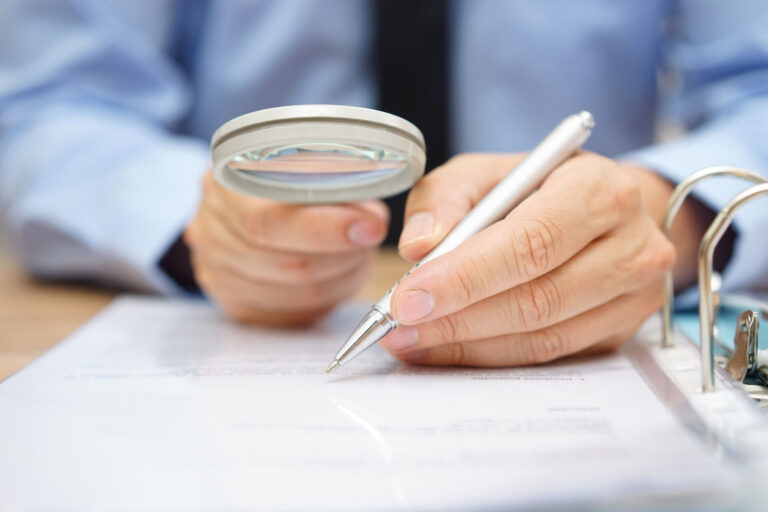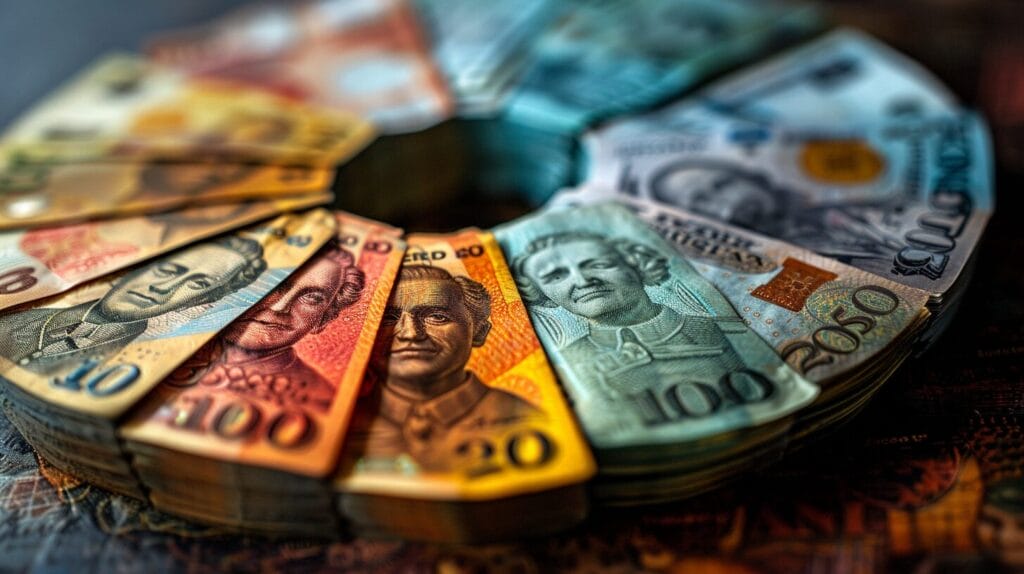
The universe of forex brokers is quite large. For example, there are regulated and unregulated offshore and onshore Forex brokers. There are A-book, B-book, and hybrid FX brokers. And on top of that, various combinations of these brokers exist. You must learn all the new terminology and trading concepts as a novice trader. It can be stressful. Choosing a forex broker can add to your stress level as well. Fear not! This article will walk you through the forex broker selection process. And we will try to minimize your stress so that you can focus on the important stuff. All you experienced traders out there, don’t be shy to give our article a read. Perhaps you can learn something new for yourself too. Buckle up, and let us jump right in.
Where do you start your FX broker selection process?
If you’re just starting out in Forex and living in an EU country, seriously consider choosing a broker that’s based right in the EU. Why? It’s all about the MiFID II directive. This thing covers every financial firm in the EU and is pretty much a safety net for traders like us – the retail traders. So, stepping into the Forex world? Make sure you team up with a broker that’s got the EU’s seal of approval.
The EU’s got a super strict set of rules for Forex brokers, probably one of the toughest globally. Getting and keeping an EU license is no walk in the park, which means any broker with one is likely to play by the rules to keep it. For you, that’s great news because it means your money’s in safer hands compared to, say, a broker chilling on some distant beach, ready to vanish with your cash.
Now, EU brokers do have a catch – they can’t offer sky-high leverage. But let’s be real, if you’re in this to truly get the hang of Forex trading, that shouldn’t be your main concern. Sticking with a regulated broker lets you focus on learning without sweating over scams. Plus, thanks to MiFID II, a lot of the vetting process is already done for you.
And hey, if you’re tuning in from the US, Canada, New Zealand, or Australia, the same advice applies – go with brokers regulated in your home country.
How do you check your FX broker’s license?
Once you have found a suitable candidate to open your trading account with, ensure they are who they say they are. All forex brokers licensed in the EU must publish their license number on their websites. Open their website, scroll to the bottom, and look for their license number. It usually consists of letters and digits (or perhaps check their Terms and Conditions web page).
What’s next? You need to copy that number and go to the regulatory authority’s website that licensed that broker. On their website, you can check if your broker has been licensed and what license they hold. EU-licensed brokers can hold one of the two types of licenses (technically, there are three types). They can have either an STP (“small license”) or a Market Maker (“extended license”).
The type of license tells you what model your broker runs. A small license only allows running an A-book model, while the market maker license allows both A and B-booking.
Some people say that you should also check the RTS 28 report. It is a type of annual report that MiFID II requires all EU-licensed financial firms to compile and make available to the general public through their websites. The report shows the top five execution venues that the financial firm uses to fill their clients’ orders. However, we believe it is meaningless from a retail trader’s perspective.
A useful guideline when selecting a forex broker is to check for multiple licenses across different jurisdictions. This indicates that the broker has invested significant time and resources to meet the regulatory requirements of various countries. Obtaining a forex license is neither inexpensive nor straightforward, suggesting that a broker with multiple licenses values regulatory compliance and client trust. Such brokers will likely prioritize keeping their clients satisfied to maintain their licenses.
Why should you check the legal documents of your broker?
Picking a Forex broker? Brace yourself for some heavy reading. The second stop after checking their license? Their legal docs. Trust us, it’s more interesting than it sounds. Complaints policies, how they handle trades, the whole shebang—it’s all there. These docs are no short read, and there’s a good reason for it.
The moment you sign up with a broker, you’re pretty much in a legal relationship with them. Those documents? They’re the rulebook of your trading relationship. They lay out what you can expect from them and what they expect from you, detailing everything about how they do business.
We know, diving into account setup and throwing cash in is way more exciting. But wait—reading these docs only when trouble pops up is like reading the manual only after you’ve accidentally set your kitchen on fire. We’re saying ‘when’ you hit a snag, not ‘if,’ for a reason.
Don’t be that guy. Take the time, dig into the fine print, and if something doesn’t make sense, hit up their support or send us a message. No question’s too small, especially when it’s your money on the line.
Why you should check your potential broker’s social media?
Another crucial step in your forex broker vetting quest is checking their reputation online. Start with their social media. Typically, they will have all their profiles listed somewhere in the footer of their website. Check out their profiles. See if they are active online, what they post, and how often they do it. What kind of comments do people leave under their posts? If they post stuff regularly, that’s a good sign. They are working on their online presence.
If there are only good or negative comments, that’s two red flags. Exclusively positive, praiseful comments indicate that they may not be organic. If their social media is full of negative comments, carefully review them and see what people complain about most often. That way, you will get an idea of what to expect. While you are at it, see how your potential broker addresses these negative reviews.
In addition to a forex broker’s social media profiles, check specialized forums such as FPA, BabyPips, and Forex Factory, to name a few. The idea is the same: we are digging for “dirt.”
A word of caution though, don’t take these comments at their face value. Your decision as to whether or not to open an account with a broker shouldn’t be based exclusively on these comments. You have to keep in mind that forex is a highly competitive industry. And sometimes, forex brokers engage in practices that aren’t necessarily ethical. Many of them are not afraid to drag their competition through the mud.
Also, you should remember that it is tough to motivate satisfied clients to leave positive reviews. You have to specifically ask every such client to leave a positive review on a broker’s social media, and not all of them will do it (maybe two or three out of every ten). Disgruntled clients, on the other hand, don’t need additional motivation.
Why should you check customer support when choosing a Forex broker?
The next step in business is checking how knowledgeable and attentive their customer support department is. The support staff is the broker’s first line of “defense,” and you will probably need their help with something at some point.
In addition to solving all common technical issues with their trading platform, they should also be able to consult you on every area of their trading conditions. Try contacting them at different times and on different days of the week. See how quickly they respond. Ask if they can log you in remotely. This will give you an idea of how technically equipped they are. Through support staff, you can indirectly evaluate how skilled their management is and if they pay any attention to training their staff.
A final thought on testing their support people. You should conduct your checks before committing any real money, which is common sense, and you can do them while you are still demo trading. At this stage, your broker doesn’t know if you open a live account and if you will ever deposit any money. Very often, they would prioritize live account clients over demo account clients. Therefore, you can see how wide the gap is in the quality of their customer service.
Why you should check for typos on your broker’s website?
You can do a couple more things to ensure you feel at home with a broker before opening a live account. For instance, you can peruse their website if you have time. You should look for typos, misspellings, funny-sounding expressions, and other irregularities in their website texts. To give you an example of a funny-sounding term, how about “client cabinet”? Some brokers give this name to their client area, and it is a word-for-word translation from Russian. It means the client’s office.
While these things do not directly affect their primary business, they can tell you if your broker has a budget for a decent translator and/or copywriter. If they can afford an in-house native speaker translator, they can afford many other more important things that translate into better client experience. Generally, it can tell you how much attention they pay to such small details.
Why demo trading is important when choosing a Forex broker?
So, you have been going through our checklist and so far it tells you that you are on the right track and should open an account with this broker. But is there anything else you can check? Absolutely. You have been demo trading with this broker for a while, and demo trading can give you some idea of what trading conditions are like. However, demo trading is an ideal “lab” environment, and you should keep that in mind.
For example, your stop loss and take profit orders work as expected in a demo environment, but when you switch to a live account, you may experience slippage. Your trading strategy may perform brilliantly on your demo account once you start trading with real money. You can only find out how your strategy performs by trying it out on a live account. Don’t be afraid of making the minimal possible deposit. While you are at it you can test how quickly they process your deposit, and the money hits your trading account. Later you may need to add more funds to your account urgently, and it is good to know how quickly you can do it.
What can you find out about your broker by verifying your profile?
Your broker will ask you to provide a form of identification and proof of your residential address, and it is part of their Know-your-Client policy (KYC) and is perfectly normal. Nowadays, forex brokers integrate automated verification systems that may ask you to take selfies. That’s OK, too, so don’t be alarmed.
The verification procedure is essential, but it is not the focus of our article. Once you get this over with and they inform you of the successful completion of their verification procedure, you will get access to their deposit methods. And that’s the most exciting part because you will be able to see what payment systems and banks accepted your broker as their client.
They are financial institutions just like your broker and have their own KYC and risk assessment procedures. As part of their “onboarding process,” they ask your broker to provide information on shareholders and directors of your broker. They run different background checks on them. For instance, they can check if any of them have ever been involved in illegal activities or have been prohibited from practicing in their profession altogether.
Banks are the pickiest of all payment providers. If you ever tried to open a bank account for a forex broker, you would know. It is incredibly hard. Usually, you would start by contacting top-tier banks, then when all of them turn you down, you start contacting tier-two, tier-three, and so on banks. Judging by the bank your broker does banking with, you can tell a lot about your broker and their risk profile. For instance, if they bank with one of the smaller or privately owned banks, that means that all other banks turned them down.
Our Advice to Newbie Forex Traders
Every time we scroll through social media, we bump into someone asking, “What’s the best Forex Broker?” Hit up the comments, and it’s like everyone and their dog has a suggestion. But here’s the thing, hardly anyone explains why they’re pushing for this broker or that. And let’s be real, not all of those glowing recommendations are legit. Some are just sneaky ads by the brokers themselves. Pretty eye-opening, right? Especially when you’re trying to find a trustworthy Forex broker.
So, to all traders out there trying to pick a Forex broker, here’s our two cents. Don’t just jump at the first name that pops up. Got a recommendation? Cool, but don’t let that be the end-all-be-all. Dive deep, do your homework, and ask all the right questions so that you’ll make informed decisions based on your thorough research.
Take your time, remember, this isn’t a race and your Forex investment learning journey should be a fun experience.



